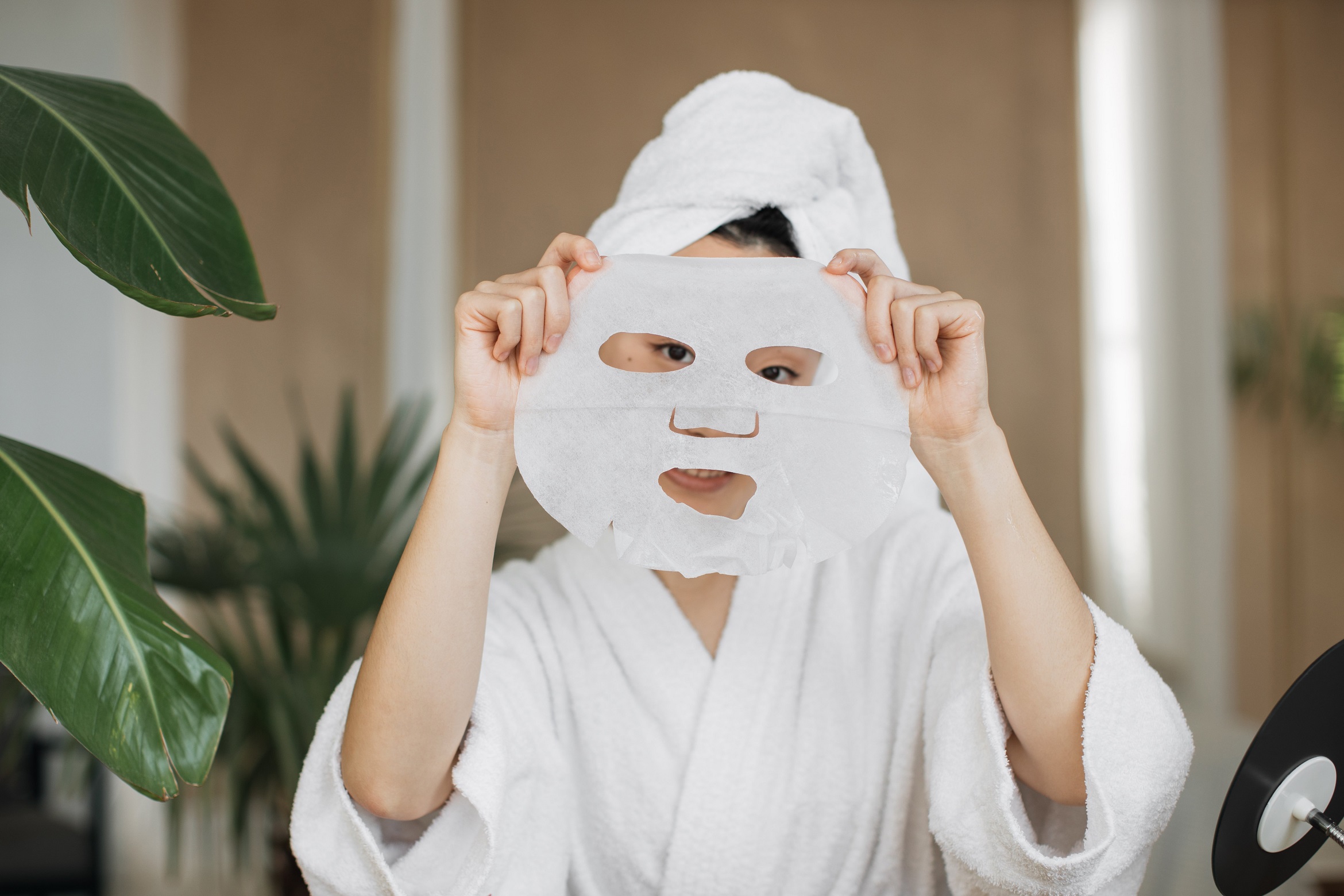
It’s my birthday this week, and once again I am forced to sit for a second with a little pen and work the whole thing out properly. Just as 22 followed 21, and 38 followed 37, 43 must unavoidably pursue, catch and eat 42 whole, leaving only wind and crumbs. I am not so much coasting into middle age as waking up on its carpet, blearily grabbing for a glass of water and asking in a mumble for the time.
I am lucky. I am a lucky person, my life full of the stuff. It reveals and reproduces itself constantly, good luck being squirted endlessly on to my conveyor belt like that video of Twister ice-creams being made, in which the sticks are thrust by machine claws haphazardly and recklessly into the ice-cream’s soft, delicious centre as if a broken spine. One piece of luck I am grateful for today though is that I was able to get all the way to this slackened age before I was compelled to think about wrinkles.
Gen Z (people born between 1996 and 2010) spends more on skincare than any other generation, and while historically the products that used to be marketed at them were to prevent acne, today they’re to prevent signs of ageing. They’re calling it "prejuvenation", a word that suggests eternal life, possibly a dystopian holiday resort with a never-setting sun. This year there was a flurry of chat around one girl’s TikTok where she filmed "some things that I do to slow down the ageing process as a 14-year-old".
She started the anti-ageing project, she explains, at 12, with products, vitamins and two face masks a day. "Never forget to do skincare on your neck," she notes, "that’s one of the main things that ages." It all ages, darling, I drawled in an elderly fashion at the screen — that’s how life works. An article in i-D suggested that "the old-age filter", an app which uses AI to accelerate your face’s age by decades (along with the Kardashians’ and Love Island’s normalisation of filler and Botox) is "helping to fuel the boom in tweakments among people in their teens and 20s". The "preventive Botox" hashtag has had more than 53 million views on TikTok, where "a number of clinics now use TikTok to advertise their services, making dubious claims such as ‘prevention is key!"’. Or could there be another key? Like, a key that unlocks women’s terrible fears and anxieties around ageing, or one that offers a power beyond that found in beauty? Who could say.
It makes me think about the red hard-backed notebook my grandma gave me when I was little, telling me firmly I must only write in it when I was starting my first novel. As time passed the unopened book continued to emit pressure, like a carbon dioxide leak, reminding me of the limits of my imagination, and the book was never used, too precious, too valuable. Now it moulds in my parents’ attic, unfilled, curling, a symbol of all kinds of existential horrors and unlived ambition. This is how young people are treating their youth, holding it like a clean notebook or precious ice cube in their hand, paralysed. They’ve been told endlessly how valuable that youth is, and they’ve seen what happens to women when it melts.
Last year in the Financial Times Lucy Kellaway pointed out: "Our blindness to ageism is particularly puzzling as it is a prejudice not against people who are different from us ... but against our future selves." The only sensible solution to this ageism, even looking kindly out at the world, seems to be: simply do not age. And the proliferation of "anti-ageing" products (including an increasing number of brands targeting very young women) suggests such a thing is possible, if you have enough money and enough persistence. If one product doesn’t work, and time still insists on rudely rolling forward, you must buy the next one, driven to the shops by terror and shame, and a need to get closer to the gates of power and wealth.
To join in — to invest in these products and needles and anxieties — is to take part in society, not just because it tells our peers or potential bosses we are healthy and ambitious, but because the quest for beauty is positioned as a journey, both to fulfilment and better mental health. When (as was reported earlier this year) "an epidemic of sadness" is emerging among teen girls across the US, with 57% feeling "persistent feelings of sadness and hopelessness" it makes perfect sense that more young women might be turning to products that offer a sense of control, and promise not only to improve them or protect them, but perfect them, too.
I feel lucky to be getting older. That’s real — I’m not just saying it in a yoga voice, I feel lucky. I just wish it was easier to untangle these beauty standards and their associated dreads from the joy of living to watch another video of ice-cream being shonkily made, or groan at another ad campaign for miracle serums, or eat another birthday cake, but — maybe next year. I’ve got time. — The Observer














